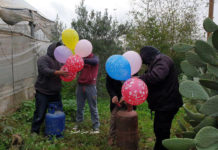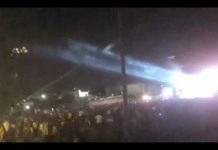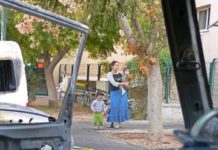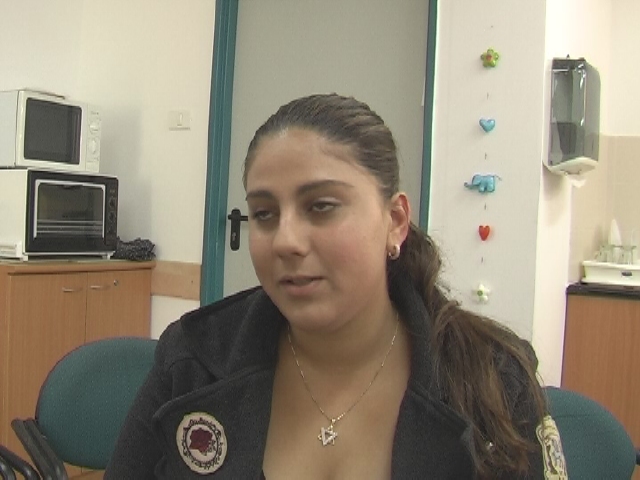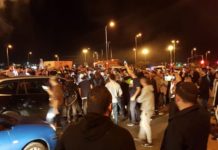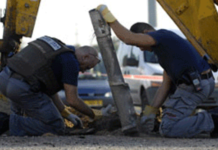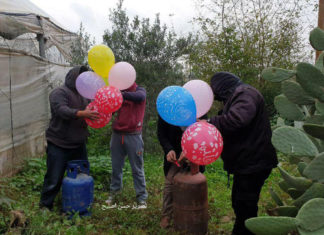As much as we are aware of the psychological impact that Palestinian rocket fire has on the average Sderot family, we often do not
understand the implications of rocket terror on those who are physically handicapped, visually impaired or those with special needs.
On Thursday, December 11, a conference in Sderot was held to raise awareness for the handicapped and disabled population of the community. The conference, facilitated by Enosh, the Israeli non-profit Mental Health Association, and other organizations in Sderot devoted to disability issues, featured speakers and workshops that revealed how people with disabilities manage and learn to live life as normally as possible.
In Sderot, there are obviously other challenges facing someone who is wheel-chair bound or visually impaired. Ziv Biton, 19 years old, was
born partially blind and grew up in Sderot. Speaking with Sderot Media Center, Ziv explains how living under Palestinian rocket fire
and sirens for the past year 8 years had become so frightening thatshe moved outside of Sderot during her senior year of high school.
“I would find myself in situations where I didn’t know what to do,” says Ziv. “I remember once I went to the grocery store with my dad at
night. I waited for him in the car and suddenly the Tzeva Adom siren went off. Because it was night, I couldn’t see anything and there was
no way I could leave the car to find a shelter. It was a very scary moment.”
And it wasn’t the only moment where Ziv found herself in peril. Ziv explained that there were many times when she had difficulty locating
a bomb shelter because of her vision impairment. The last straw was when a Qassam rocket exploded in her Sderot high school when she was
in eleventh grade. “After that it got to the point when I was constantly going into shock and sometimes even fainting when the Tzeva
Adom sounded and a rocket exploded.”
Soon after, Ziv decided that she had to leave Sderot. “It was very difficult for me to leave my family and friends during my senior year
of high school,” said Ziv. She moved to Jerusalem where she finished her high school studies and began her national service (obligatory
volunteer work) at Beit Hanasi, the center for the blind.
However, the rockets could not keep Ziv away forever from Sderot. She is now finishing her national service in Sderot. “Sderot is my home,”
she says. “There is no other place in Israel where the guy at the falafel stand knows what to put in my falafel.”
“Although I felt much safer in Jerusalem and had the time to recuperate from the rocket attacks, I felt that I needed to come back
to my family, to the place I grew up.” Ziv now lives with her sister in Ashkelon and comes to work in Sderot during the day.
Tzachi Tzdaka, a social worker in Sderot and one of the organizers of the conference for awareness of the physically disabled, told Sderot
Media Center that handicapped individuals in Sderot face additional obstacles with the advent of Palestinian rocket attacks on the city.
“A wheel-chair bound person has to think where to enter a bomb shelter when the Tzeva Adom alert sounds-not all bomb shelters are measured to
fit wheelchair bound individuals. Someone hearing impaired or visually impaired must plan his or her day with the idea that the rockets will
be fired and that they need to be as close as possible to a shelter. Many times people with disabilities will opt to stay home.”
“The key to all this,” says Tzadaka, “is awareness and making the community of Sderot and the government of Israel aware of the issues
surrounding handicapped individuals, especially in light of the rocket attacks.”



